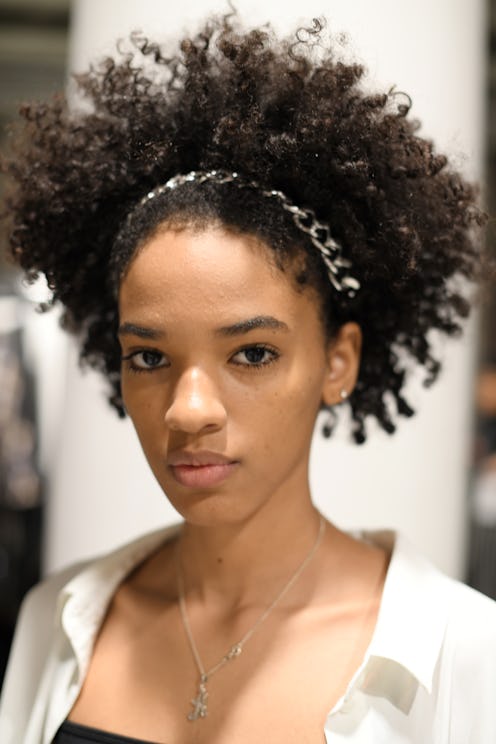We've all been there. Laying down, contemplating if we actually have the energy to complete our nightly skincare routine. Deep down, we know how important it is. But mustering the energy it takes to give our skin the care it deserves after a long day can seem like quite the tedious task. Nonetheless, caring for our skin before bed is a must no matter our skin's needs are, and overnight beauty products are proof of the power of proper beauty while sleeping.
"Your nighttime skincare routine is extremely important as it is the time for your skin to restore itself and absorb nutrients while makeup is not in the way," Dr. Michelle Henry, MD, New York City dermatologist says. "Also, there are less environmental stressors during the night to cause harm on your skin." Another reason nighttime beauty reigns supreme is because cell turnover actually peaks while we sleep, making it the perfect time to pack your face with good-for-you products. "Overnight skincare products take advantage of what is naturally happening in the skin to help stimulate collagen and strengthen the skin," Dr. Joshua Zeichner, MD, New York City dermatologist, says. "It has also been demonstrated that skin hydration levels decline during the second half of the day, which explains why overnight masks and such are so popular."
This spring, however, we're seeing an influx in products specific to overnight beauty, a spike that experts are attributing to an increase in studies surrounding sleep and skin. "We are lacking definitive data on how much sleep is ideal for the skin, however, findings show that lack of sleep means the skin cannot heal itself and produce new healthy collagen the way that it normally should," he says. Because of that, Zeichner suggests a solid eight hours to his patients. "We know that the skin undergoes normal circadian patterns, where specific activities occur in the morning and others in the evening," he says. "Plus, without sleep, cortisol levels remain high round the clock which promotes skin inflammation and even acne breakouts."
However, overnight skincare products won't cure all of your skin woes immediately, so don't expect magical results. "While products can help repair the skin overnight, it will still be your skin the next morning," Dr. Zeichner says. "You should be leery of any product claiming to provide too dramatic of a result." Instead, give products a chance, using consistently for up to four weeks before determining if the results are satisfactory. That is, if you aren't having a negative reaction. That's why those with sensitive skin should pay especially close attention to promises of overnight products. "You should definitely read the ingredients in an overnight product before using it to ensure you are avoiding anything that may irritate your skin or negatively interact with products you are currently using," Dr. Henry says. "If your skin is extremely sensitive you may even want to consult your dermatologist before trying anything new."
Dr. Zeichner also suggests veering from pillowcases made of synthetic fabrics while sleeping. "There is mounting data that your pillowcase may truly have an impact on facial aging," he says. The data has found that as the face rubs against the pillow, there are frictional forces that lead to skin folding and the development of wrinkles. Therefore, he's an advocate for natural fabrics like cotton or silk instead of synthetics which are rough at the microscopic level and can cause trauma and inflammation to the outer skin layer. "The higher the thread count, the softer and more gentle the fabric," he says. "While not everyone can afford 800 thread count pillowcases, I recommend at least 200 thread count for anti-aging purposes."
So ahead, check out the new overnight beauty products the experts actually suggest, that are proving to work overtime while you take a much-needed snooze.
We only include products that have been independently selected by The Zoe Report’s editorial team. However, we may receive a portion of sales if you purchase a product through a link in this article.
Studies Referenced:
Poljsak, B., Godic, A., Lampe, T., & Dahmane, R. (2012). The influence of the sleeping on the formation of facial wrinkles.
Experts:
Dr. Michelle Henry, MD, of Laser & Skin Surgery Center of New York in New York City.
Dr. Joshua Zeichner, MD, of Zeichner Dermatology in New York City.
